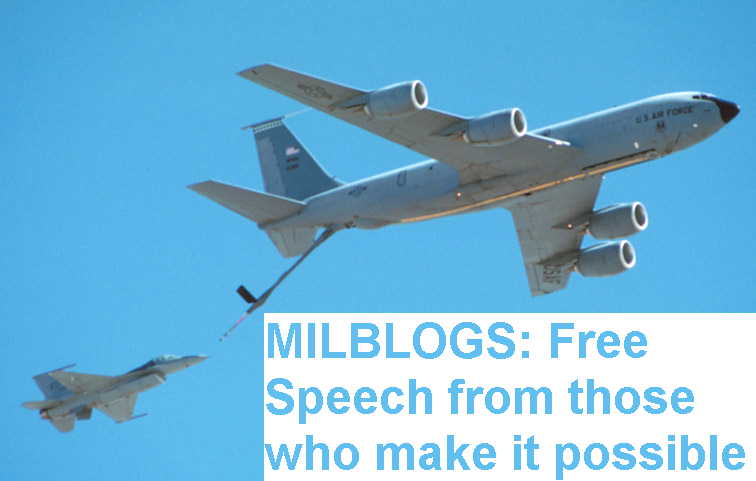April 13, 2005
Reading this article, (found through this related article...read them both), I was struck by a realization.
Here's the excerpt that stimulated the thought:
This may well be the most important lesson coming out of the Iraq war. The outcome of major combat operations was never seriously in doubt, although plenty of supposedly serious people predicted the siege of Baghdad would be America's Stalingrad. What was in doubt, however, was whether the U.S. could prevail if the war became an extended test of wills against a determined foe using guerrilla and terrorist tactics. This was a test not of the skill or bravery of the American soldier, but of the home front's willingness to see the war through; a test in which the key to victory wasn't competence but perseverance.
So here's the thought:
How often has anyone beat an insurgency that was using guerrilla tactics? You could say Great Britain has just about done so with the IRA in Northern Ireland...but how many decades did that take? We've just about broken the insurgencies back in just about two years.
Militarily, nearly all the advantages lie with guerrillas. They can hide among the populace. They don't have a large logistic/supply train, so money goes a long way. They can choose the moment and location of the battles. They only have to be successful at the moment of their choosing, whereas the standard defending military force has to be on guard all the time. The language was working against us. The locals' conditioned fear of authority worked against us as well. The Iraqis weren't really on our side at the beginning, either: several polls expressed the commonly-held attitude of "Thanks, US, now get out!". But we didn't, and we managed to not only defeat the insurgency militarily, but also win the support of the people.
Of course, those two are inextricably linked. Everyone loves a winner...especially people who have a sense which side of their bread is buttered, i.e., not wanting to offend someone who might be in charge within a few months.
I have to say I think that defeating the insurgency didn't convince the people to support us as much as eliminate the necessity for them to support the insurgents out of fear.
So how did we beat them?
Persistence. Despite the best efforts of lots of people back home, we didn't cut and run when the body count climbed. One of the best things that happened for us in Iraq was re-electing President Bush, since Senator Kerry all but stated flatly he was going to withdraw the troops regardless of whether we achieved our objectives there or not.
Unambiguous statements of intent to leave when things are stable, repeated often, and backed up with concrete steps in that direction. We stayed out when they formed the council to write their constitution. We stayed out as they fought over the constitution. We turned over more and more functioning to the governing council. We never kept any of the revenues from oil sales. We spent our money rebuilding infrastructure. We turned over full governing to the Transition Government on schedule...actually, a few days ahead of schedule. We worked hard to make sure the elections would happen on time. These are not minor achievements.
Military Intelligence. (.pdf file warning) Even with a populace that wasn't very helpful, we had some of our best minds working to piece together scanty information to locate insurgency leaders and safe house locations. The story of how Army Intelligence located Saddam Hussein is both amusing and amazing. From the linked article, here's a brief summary:
The 4th Infantry Division (ID) captured Saddam Hussein based on intelligence developed from linkpattern analysis. The 4th ID is the most modernized, digitized, and computerized division in the Army, yet intelligence personnel who did the link-pattern analysis did it the tedious, old-fashioned way, using pads of butcher-board paper, yellow stickies, and a large wall chart.7 Some dedicated intelligence personnel did a brilliant job, but time and energy could have been greatly reduced with current software applications
and computerized databases.
Knowing where to hit is far more important than having the ability to hit hard. In fact, the basic idea of military intelligence is gathering enough information to use a minimum of force to achieve the objective. After all, we could have "won" the insurgency by using nuclear weaponry...but everyone in the country would have been dead. If we could get sufficient intelligence that a hat-pin could win a war, we'd do it. Lacking that level of intelligence, we make do with what we have...but we were usually able to get enough intelligence to be able to drop a bomb on the right house/building, or cordon off the right neighborhood.
Military technology. GPS, laser guidance, high-powered computers to calculate damage so we can drop the right size bomb to destroy a safe-house while doing only minor damage to the house right next door, secure communications so support can be called in...
Heck, I know McQ of Q and O Blog won't want to hear this (if he ever stops by and reads my blog), but I think one of the keys to beating the insurgency was that just about every aircraft platform had Close Air Support capability. It didn't matter whether F-15s, F-16s, F/A-18s, HV-8s, or helos were on duty, any one of them could deliver bombs or bullets on target in a timely manner. All of those aircraft have pretty decent dwell times, and the speed available to those aircraft meant they could actually cover much more ground than A-10s (not to mention, no reason to waste the A-10s dwindling remaining life doing patrolling duties).
I could do more research, I guess, to make my point stronger. But mainly, I just wanted to point out that the US military has done something amazing. Not unprecedented, perhaps (except maybe the quickness of success), but truly amazing nonetheless. Many people derided the anti-war advocates' doom'n'gloom predictions of failure and a growing insurgency...but to be honest, history was on the side of such pessimistic pronouncements. We have set a new benchmark of success.
 |

|
Prev | List | Random | Next Powered by RingSurf! |

Aphorisms (43)
Aung San Suu Kyi (4)
Blogging (213)
Car Issues (47)
Cat Blogging (6)
Catch-All (1)
China/Taiwan (65)
For Jeremy Gilby (10)
Fun With News Headlines (13)
Gun Issues (23)
GWOM (46)
GWOT (131)
Humor (76)
Jagged Alliance (11)
Kansas City Chiefs (106)
Kidblogging (20)
Liberal Democrats Are on the Losing Side of History (10)
Link O' Admiration (168)
Media Distortions (88)
Meme Stolen from Jeff G. (20)
Militaria (24)
Montana, My Home (1)
Music/Guitar (53)
New Thinking (18)
News of the Lowest Common Denominator (1)
Parenting/Leadership 101 (8)
Politics As Usual (324)
Puns (23)
Quotes You Can Steal (42)
Rhetorical Questions (27)
Snark (14)
Snarky Self-Deprecation (14)
Social Issues (268)
Spiritual/Theology (5)
Stuff Important to Me (171)
The Association of Military Linguists (1)
The Brain Fertilizer Way (52)
UK Stupidity (4)
Writing (23)
August 2008 (15)
July 2008 (13)
June 2008 (4)
May 2008 (17)
April 2008 (23)
March 2008 (57)
February 2008 (45)
January 2008 (39)
December 2007 (8)
November 2007 (13)
October 2007 (5)
September 2007 (33)
August 2007 (82)
July 2007 (44)
June 2007 (31)
May 2007 (3)
April 2007 (16)
March 2007 (7)
December 2006 (9)
November 2006 (14)
August 2005 (13)
July 2005 (58)
June 2005 (97)
May 2005 (41)
April 2005 (100)
March 2005 (135)
February 2005 (114)
January 2005 (77)
December 2004 (143)
November 2004 (151)
October 2004 (92)
September 2004 (113)
August 2004 (91)
July 2004 (145)
June 2004 (121)
May 2004 (123)
April 2004 (83)
In No Particular Order
The informed Reader
Kevin Miles
Hot Air
Future Pundit
mtpolitics.net
Michelle Malkin
Resurrection Song
The Real Dave Whiskey in My Sippy Cup
The Politburo Diktat
Ipse Dixit
Kevin I (blogoSFERICS)
Protein Wisdom
The White Peril
The Conspiracy
Slate (mainly for Kausfiles)
Kevin II (Wizbang)
Mudville Gazette
Blame Bush
Wuzzadem
The Horse's Mouth
Sharp as a Marble
Q and O
Ace O' Spades
Wadcutter
Dawn's Early Light
Seven Castles
Shenzhenren
EastSouthWestNorth Blog
The Roost
IMAO
Jeremy Gilby
Honda Fan Site
Amazon's Auto Blog
The Truth About Cars
Cox and Forkum
Chris's Invincible Super Blog!
Caption This!
Right Wing Sparkle
Blogblivion
Captain's Quarters
Iowa Hawk
Llama Butchers
Topic Drift
Witting Shire
Cool Tools 4 Men
Michael Williams
Industrial Blog
INDC Journal
Rosemarie, the Queen of All Evil
Sand in the Gears
La Shawn Barber
Dean's World
Sine Qua Non
Balloon Juice
Absinthe & Cookies
Scrappleface
Cut on the Bias
Spare Change
De Doc
Healing Iraq
The Mesopotamian
DC Thornton
Jane Galt
Iraq Now
Viking Pundit
Aimless Forest
Wince and Nod
Freedom Blog
Left and Right
Weekend Pundit
Baby Troll
Jana
I Am Always Right
Snug Harbor
King of Fools
Suburban Sundries Shack
Boy From Troy
Blogs of War
Speed of Thought
Hubs and Spokes
Mass Backwards
David
Evolution 3.0
Unravelled
Perry on Politics
Yorkie Blog
Aardvark!
Presto Pundit
North Shore Journal
Diogenes Corner
The New American Revolution
Acorns From An Okie
After Abortion
TMMKKT22
RAW 360
Anywhere But Here
I Was Thinking
| Pagerank |
| Sun | Mon | Tue | Wed | Thu | Fri | Sat |
|---|---|---|---|---|---|---|
| 1 | 2 | 3 | 4 | 5 | 6 | 7 |
| 8 | 9 | 10 | 11 | 12 | 13 | 14 |
| 15 | 16 | 17 | 18 | 19 | 20 | 21 |
| 22 | 23 | 24 | 25 | 26 | 27 | 28 |
| 29 | 30 |
(Use 'em to prove me wrong...I dare ya)
News Feed Online
Liberal Celebrity Quotes
Drudge
NRO
Strategic Forecast
The Most Trusted Name In News
Gun Broker
Homestar Runner
World Builder Projects
Iraq Casualty Count
The Guys Get Shirts
Bureau of Labor Statistics
Badger?
Lapland
A Secular Franciscan Life
An Offering of Myself to the World
Better Living Through Blogging
Big Skies
Big Sky Dave
billingsblog
Brain Fertilizer
Brain Rain
Brian Schweitzer Campaign Blog
City Lights
Front Burner Blog
Gates of the Mountains
Glenn Ferren
Ground Plums and Gun Smoke
Jared Knowles
John Clayton
Mental Wanderings
Mike Erickson
Miss Bonkrood
mtpolitics.net
No Girl Friday
Not Geniuses (Matt Singer)
Para-Bellum.net
Revolving Duck
Sarpy Sam
Scrambled legs and achin'
T.L. Hines
The Monkey Cage
Watermark
Wulfgar!

People's Republic of Seabrook
SKBubba
Opinions You Should Have
Frank at Bloggram
Democrat Underground
Intel Dump

Site Hosted by
MuNuviana

MuNu Site Tweaked
by HammerHead
Syndicate this site (XML)
Powered by
Movable Type 2.64

